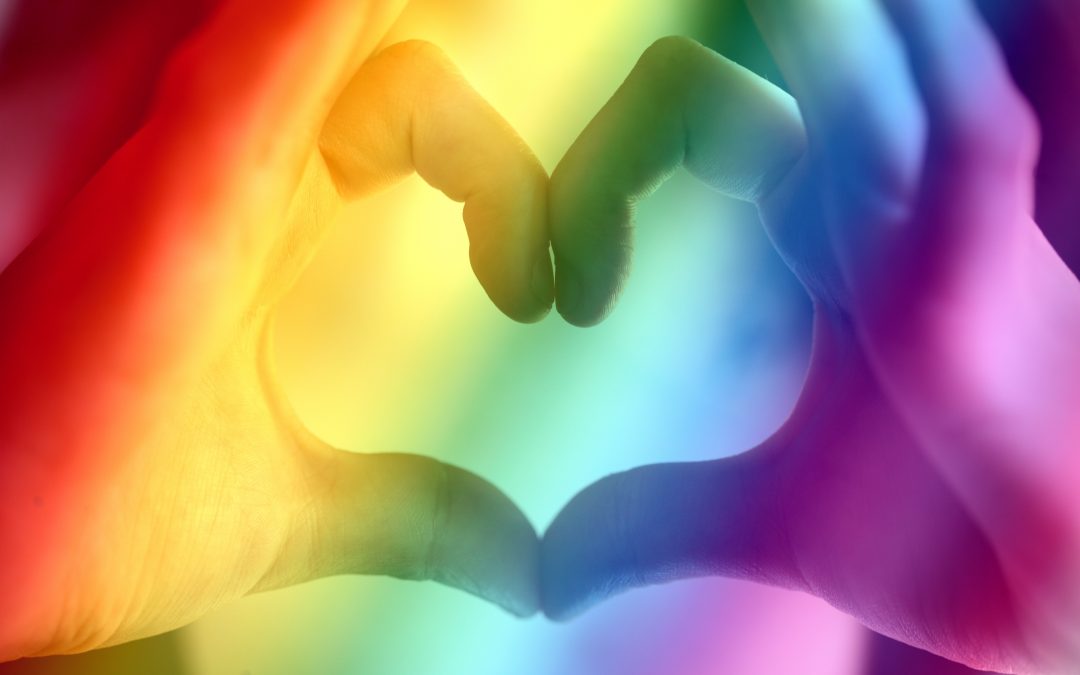

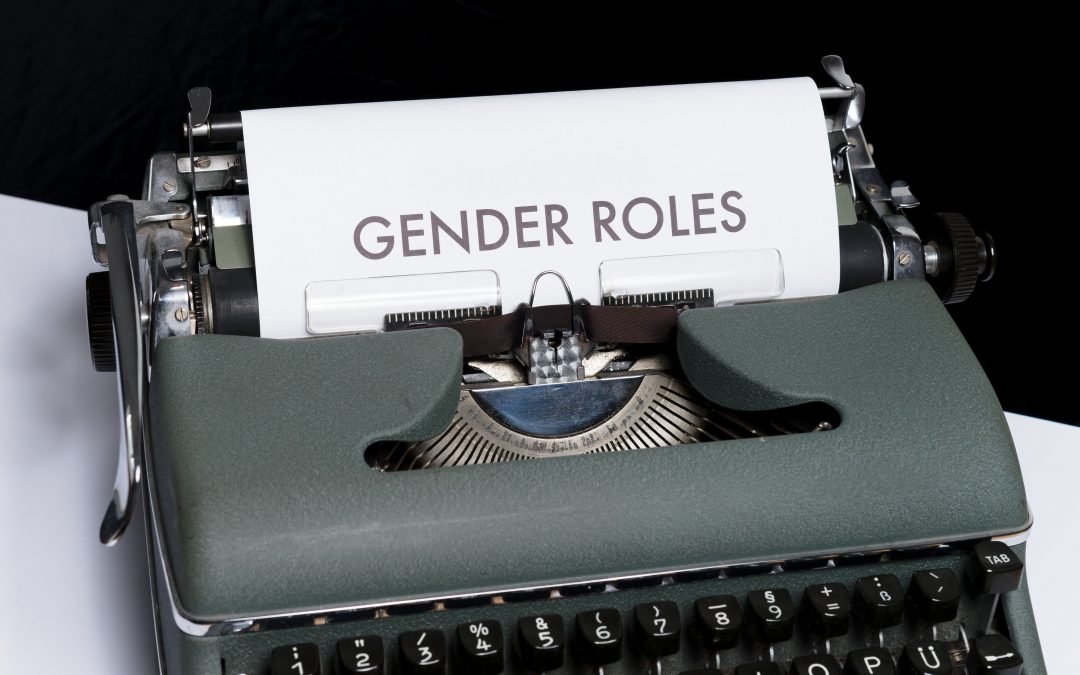
The Female Sense of Europe
Author: Paula
Female leadership is considered as especially dynamic, skilled in negotiating and commonly characterised by a great sense of justice. So how come that the female face of our European population is largely underrepresented in top positions and seems to be burdened by a great deal of injustice and inequity?
First and foremost, it is important to define the term female considering the juxtaposition of sex and gender. According to the Cambridge Dictionary female means “belonging or relating to women, or the sex that can give birth to young or produce eggs” – not really flattering but for this article the focus will lean on the biological attributes of humans, the sex. Even though the socially constructed role and behavior of people – gender – shallbe reflected at another time, we cannot avoid taking into consideration the socially constructed view of femininity – rather, this seems to be the key point of major social inequality.
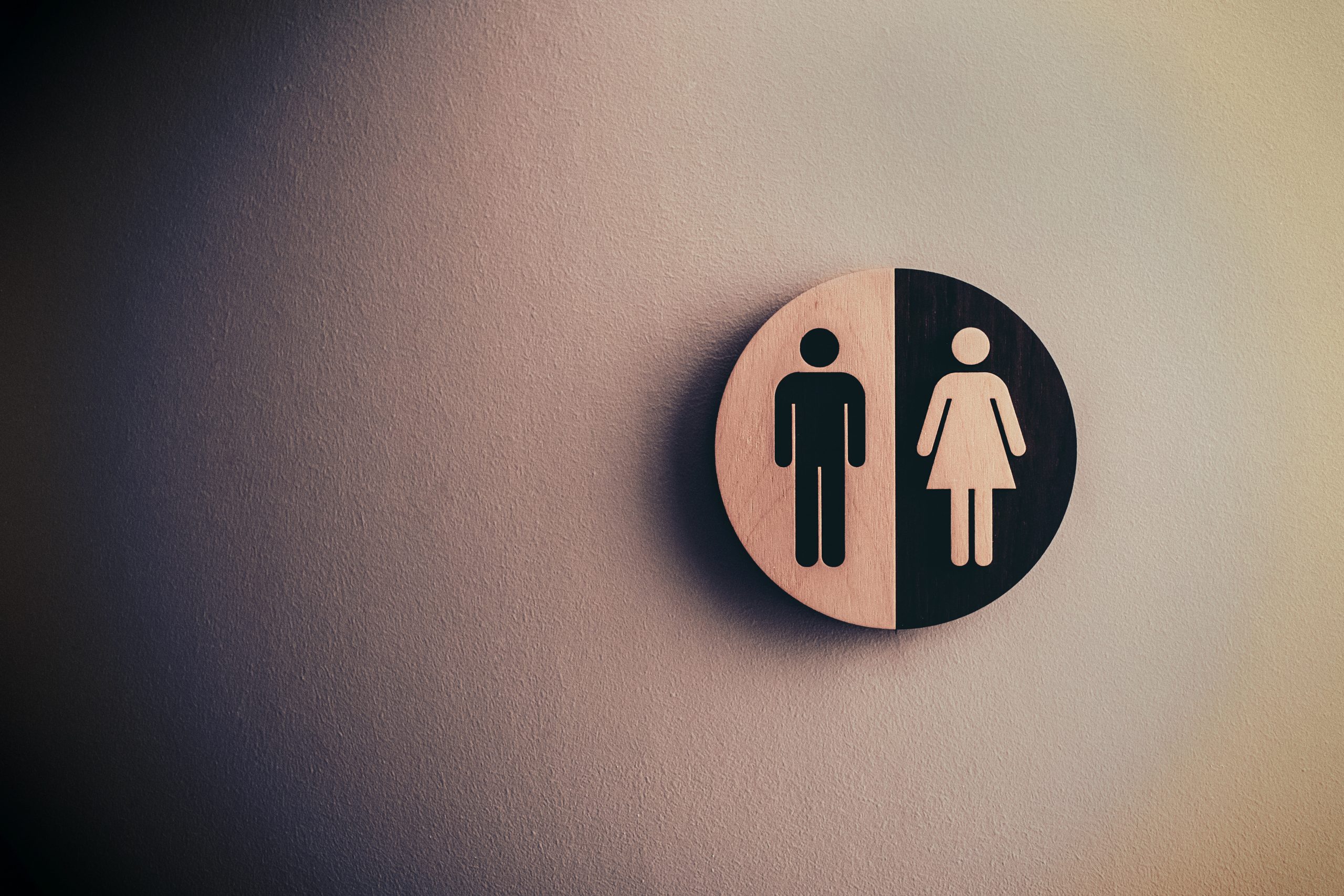
The female role in our society
The role of female inhabitants of the European Union (EU) is multilayered and complex. Throughout the EU females graduate, work, care for others, give birth and raise their children and of course, so do males (mostly). But let’s take a closer look at the numbers to determine the particular inequities European females face nowadays.
The European population amounts to 447.319 million, more than half of which – 228.763 million – are female. Even though there are numerically more females, this does not reflect in the reality of their representation in society.
The Gender Pay Gap – how unreasonable
Even though the Gender Pay Gap within the EU is no new phenomenon, it still stands at 14.1%. It shows the difference between the average hourly earnings of working males and females. Thus, females on average earn 14.1% less per hour than their male counterparts. A female earns €0,86 for every €1,00 a male gets. This, in turn means that females work almost two months for free each year, compared to males. Looking at the current Trio-Council Presidency and its three member countries, the comparison is remarkable: While Portugal (8.9%) and Slovenia (9.3%) perform quite well in the overall picture of the EU27, Germany sets a disastrous counterweight with a Gender Pay Gap of 20.1%.
How is it possible that such a large Gender Pay Gap occurs in such an advanced country, in a Union and community of states based on the principle of equality? Well, it turns out there are other gaps and inequities that lead to the gender-based gap in wages. While females face challenges such as unpaid extra work, caring for others and daily discrimination, they also have to make their living in a segregated labor market.
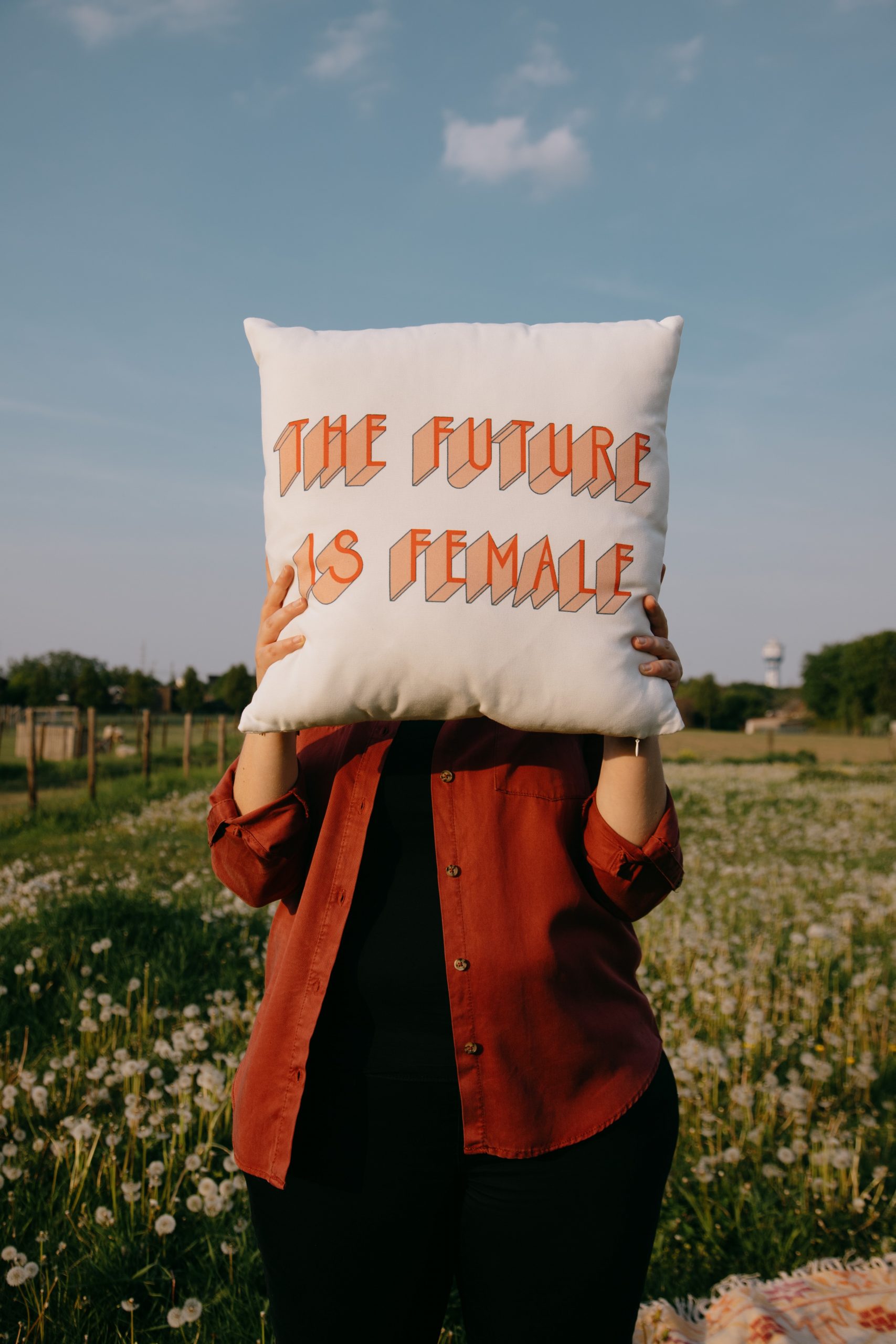
The multiplicity of gender-based gaps
According to EU27 data the Gender Employment Gap stood at 11.7% in 2019, with 67.3 % of females across the EU being employed compared to 79% of males. Although almost 60% of graduates across the EU are female, the labor market features a large underrepresentation of females. On top of this, female representation in top positions does not look very rosy either. Across the EU, there are less than 6.9% of female top companies’ CEOs and only 34% of managers are female. Of the Trio-Council Presidencycountries, Slovenia is doing comparatively well with 42% female managers, while Portugal (36%) and Germany (31%) both do not seem to be very progressive.
If we now – just for a short moment – put away all the negative delusions of injustice and focus on the current Corona Virus Pandemic, it becomes clear that where there are female leaders and heads of state, theyhave often been framed as proud figureheads in their ability to lead their countries. The new common tone is: Female leaders are more reasonable, level-headed and make smarter decisions due to their steady hand. With regard to the fact that only 11.1% of the EU27 leaders are female, it may be less of a surprise that the current political situation throughout the EU seems like it is hard to manage.
![markus-winkler-qox5EIqtctQ-unsplash[73]](http://newsroomeurope.splet.arnes.si/files/2021/04/markus-winkler-qox5EIqtctQ-unsplash73-scaled.jpg)
We need and may have some role models!
But despite all the negativity, there is something positive worth mentioning. The EU Institutions, especially the European Parliament, could become role models. Although the proportion of females in the European Parliament only lies at 40.4%, the number of females in top positions is considerably higher: 57% of Vice-Presidents are female and so are 54.54% of Committee Chairs. Furthermore, as the first female president of the European Commission, Ursula von der Leyen is setting a remarkable example for other females and successive female candidates.
It is necessary to look beyond one’s horizon from time to time and focus on the inequities many females across Europe are still facing. For our joint future – consisting of equal females, males and gender-diverse people – it is crucial to acknowledge the above-mentioned facts and, through joint effort, transform them into factors of an equal and fair European society. It’s not about pushing males from their positions. Rather, we should make common cause – we should all come out of our comfort zones and look at each other, with the same basic and human values of equality and fairness in mind. If we will look at the above-mentioned numbers in a few years and the representation of females in the labor market, in top and leading positions has increased, then we might have been able to communicate and listen to each other. Then perhaps the female sense of Europe has turned into a distinct and indispensable female side of Europe – what a different world, what a wonderful world that will be.
Links/ Sources:
- https://brussels.fes.de/fileadmin/user_upload/Inequality_in_Europe_-_final.pdf
- https://ec.europa.eu/info/sites/info/files/factsheet-gender_pay_gap-2019.pdf
- https://ec.europa.eu/eurostat/statistics-explained/index.php/Gender_statistics#Labour_market
- https://ec.europa.eu/info/policies/justice-and-fundamental-rights/gender-equality/equal-pay/gender-pay-gap-situation-eu_en
The death that sparked the protests across Europe
Author: Tjaša & Kristijan
His tragic death is powering a movement against police aggressive brutality and racial discrimination.
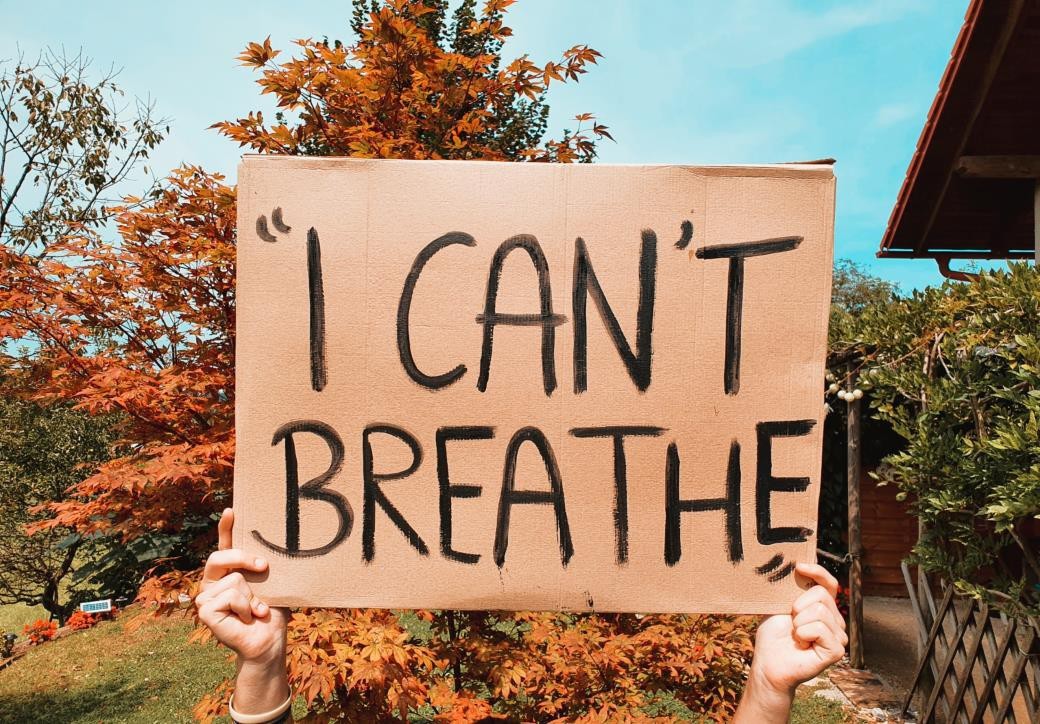
Who was George Floyd and why he will be forever remembered.
George was born in New York city to his father George Perry and mother Larcenia. His parents divorced in his early years and that lead himself and his mum moving with their siblings in Texsas.
When George was growing up he was known as “Big Floyd” and his nickname certainly matched with his humorous personality. He was a jokester, cracking jokes at all times. Everything changed on May 25, 2020. A 46 years old African-American was killed in Minneapolis, Minnesota, during an arrest for allegedly using a fake bill. His name was George Floyd.
A white officer named Derek Chauvin, knelt on Floyd’s neck for almost eight minutes while George was handcuffed and lying face down, repeatedly begging for his life and saying:
“I can’t breathe”.
During the final two minutes of his short life, Floyd was motionless and had no pulse while Chauvin refused to remove his knee, which he did not do until medics told him to.
In almost an instant videos that were shoot with security camera went viral all over the internet. People were furious and started responding. All four officers were fired, but people wanted justice for Floyd’s death. Chauvin, the man who killed Floyd was charged with third-degree murder and second-degree manslaughter, to which was later added second-degree murder. The three other officers were charged with aiding and abetting second-degree murder.
His death triggered many protests against police brutality, police racism and even lack of police accountability. In the start of June, the Minneapolis City Council took action to ban chokehold and require police officers to intervene against the use of excessive force by other officers.
Chauvin the man who was kneeling on Floyd’s neck was later bailed out of jail by people founding his bail on crowdfunding sites like GoFundMe, IndieGoGo and Kickstarter. The rumor has it that Chauvin himself put up the campaign himself.
What is racism
Racism is a form of discrimination which is often described as severe negativity towards nationality. It is based on judgment of racial differences between people and it is shown in behavior, discrimination and acts.
We know that in Slovenia there is no lack of racism, which is shown in many different forms. The loudest and dangerous in work of politics and its civil exposures, that they are selling racism as home loving, then are this subculture as are football supporters, skinheads, who were in the past frequently dealing with people of color on the streets of Ljubljana, the capital of Slovenia.
European Union reacts to the death of George Floyd
From Berlin to Barcelona, thousands of people are rallying against racial inequality and police brutality. The protest movement was denounced as “reckless” for ignoring social distancing rules.
Slovenia
A few dozen people gathered outside the U.S Embassy in Ljubljana to support of anti-racism protests in the United States which were started with the tragic death of George Floyd following his arrest by Minneapolis police.
Spain
Thousands of people in Spain were engaged in anti-racism protests. Several thousand gathered in front of the US embassy in Madrid, many holding signs saying “I can’t breathe,” which were George Floyd’s last words.
Germany
Werder Bremen and Wolfsburg have become the latest German Bundesliga football teams to show their respect with the Black Lives Matter protests. Both sides took a knee before the game began, echoing a similar gesture made by fellow teams Borussia Dortmund and Hertha Berlin.
Denmark
At least 5,000 people have joined a demonstration against racism and police violence in Copenhagen. Protesters gathered in front of the US embassy in the Danish capital’s Osterbro district. Danish radio station DR reported that the call to action was made by the Danish branch of the Black Lives Matter movement.
England
A statue of English 17th-century slave-owner and merchant Edward Colston has been toppled to the ground by Black Lives Matter protesters in the UK city of Bristol.
Rights groups and protesters called earlier in the week for his statue to be removed. Colston left a big legacy on the city of Bristol with a lot of streets named after him.
Black Lives Matter protests were planned across all the UK for Sunday. Event organizers in Bristol say around 7,000 people turned out.
Italy
Rome has seen its first major rally against racism as thousands of protesters gathered in People’s Square. Most wore masks in the country that has seen one of the highest death rates from COVID-19.
Participants listened to speeches and waved placards reading “Black Lives Matter.” The peaceful rally was attended by people of all ethnic backgrounds and ages. At one point, demonstrators kneeled and raised a fist in solidarity with those fighting racism.
What will happen next with this protest movement in Europe and across the globe? Is it a one-off event with little long-term momentum or the start of a bigger wave of change? For now, it is hard to predict.
You Should Smile More
Author: Maja & Karmen
The Eu is a global leader in gender equality and has made significant progress in the last decades. But are things really equal for both women and men? Maja and Karmen tried to focus on that situation at work.
Your content goes here. Edit or remove this text inline or in the module Content settings. You can also style every aspect of this content in the module Design settings and even apply custom CSS to this text in the module Advanced settings.
Last year in the EU 33% of women were subjected to physical and/or sexual violence, while 55% were sexually harassed. This do not include just rape but also different types of sexual harassment like gender discrimination, physical harassment, verbal harassment, pay gap… The harasser can be the victim’s supervisor, an agent of the employer, a supervisor in another area, a co-worker or a nonemployee. What’s shocking is that six out of ten women in Europe have endured sexist treatment or suffered sexual violence during their careers.
And it’s not just harassment. Women often face difficulties even with getting a job because the employers know that somewhere in the future, they would have to take maternity leave and they will still have to pay her even though she won’t be working. They are also subjects of assumptions; women should go make a coffee for the meeting because she probably knows how to make it better or she should make notes because she probably has the best handwriting.
“Gender equality is a core principle of the European Union, but it is not yet a reality.”
https://ec.europa.eu/commission/presscorner/detail/en/IP_20_358 (President of the European Commission, Ursula von der Leyen)
Gender-based stereotypes in different professions
Imagine a nurse. Now imagine a doctor. Which gender do you see in which profession? Now picture flight attendant. Or a mechanic. It is more than likely that you saw a woman in the first position and a man in the second. That’s because even in 2020, we still see some professions strictly as a male or a female job. This is a problem for both genders, because it has an effect on kids and teenagers when they consider their career choices.
Women go after careers that are more feminine and have more flexible work hours, while men avoid these careers in fear they’d get looked down or be considered less masculine.
But stereotypes don’t just exist in terms of what profession is appropriate for which gender. What’s even more concerning is the fact that they exist within most of professions. We asked couple of women and men who works in a bar or a restaurant about their experiences with gender-based stereotypes. All of the women said that they often get comments like: “Do you have time after work”, “Smile, you would look prettier if you smile,” or just comments about their body in general. On the other hand, just one of the guys had an experience like that. Women also stated that it’s very common to be called things like sweetheart or honey; meanwhile with men this was never the case.
Getting comments like that is very common for women in all profession. The reason for this is because this kind of behaviour is commonly accepted by society and often excusable that it was meant as a compliment. But the truth is that every person should smile for himself and not to please others.
The Girl Who Stands in the Dark
Author: Teja
Violence against women is a universal phenomenon. We can see it in every culture, region, country and social class. According to the FRA (European union agency for fundamental rights) survey on violence against women, one in three women has experienced physical and/or sexual violence since the age of 15. Of 31% of women in the EU experienced one of more acts of physical violence. 11% has been a victim of sexual violence. 5% has been raped since the age of 15. (https://www.europarl.europa.eu/RegData/etudes/STUD/2016/556931/IPOL_STU(2016)556931_EN.pdf)
In 2017 there were 38 reported rapes of man in Slovenia. It’s interesting because in England and Wales there were over 48 thousand rapes of women in 2017. Does Slovenian girls even report rapes? (https://www.statista.com/statistics/1072770/number-of-rapes-in-europe/)
I have met and talked to a Slovenian girl who was not a victim of rape, but she has come across of different kind of abuse.
This girl deserves the whole world. On this planet are people just like her. Broken. I want to tell you a part of her story so you will understand how important talking with someone is. For the purpose of this article we will name the victim Kristina.
A little over 20 years ago a girl was born. Little baby girl. She already had a big sister, brother, mother and father and her grandparents. Later her family increased. The girl became a big sister and one hell of a good aunt. We know they truly loved her since the beginning. But something braked on the way. She grown up to this beautiful long blond girl with sweet lips and a big heart. I will tell you her story, a story that no one knows, because it is happening behind the close doors of beautiful, big and worm home.
Deep down we all know that her father loves her, he loves his family more than anything. But health is a big factor for what is happening to them. Her father is sick. She was abused by him all her life. He told her that she is useless, whore, stupid, lazy, incapable of anything, disgusting and a lot more. His words braked her. She is in this big black hole and she thinks she is uncappable of getting out. His words pushed her to the same hole. Only words had done a lifetime damage. Because of these words, she thinks that she doesn’t have a future. She blames herself that she gave up and not finished her school. She was visiting a recognized school in Slovenia. Even though Kristina moved away from home, his words haunt her. She is going everywhere with them. She is the best possible sister to her younger sibling, she is teaching her about what is right and what is wrong, about what their father did to her and she is teaching her that she will never be alone, that she can always count on her big sister.
Did you notice something? Even though she has been to hell and back she will always put her family and her friends in front of her. She will make her friends laugh, she will sing with them all the bad songs, she will tell them jokes, she will cry with them and she will be their warmth and kindness. Her friends can’t give her everything she gave them but they try to. They push her to be the best version of herself, to be kind, to love, to be loved, to grow in this awesome girl who will show her father that she is better than him, that she didn’t give up. Words hurts most in the world but she is stronger. This girl deserves the whole world.
If you know someone who is dealing with that kind of stuff at home or at school. Or you find yourself in this the same position. Call someone you trust, call local police or social service and don’t give up, you got this. You deserve a world too.
Teja Miklavčič
Search for help and say STOP to violence
Author: Tina
Awareness of domestic violence against women is very high across the EU, thanks to media such as television (92%), newspapers and magazines (59%) informing the vast majority of EU citizens about the problem. 78% of Europeans recognise that domestic violence is a common problem. In times, especially in those when you are ‘forced’ to stay home with your family members, there was a lot more reports about domestic violence than past years. What can I do? Who should I turn to?
A lot of victims are uninformed of what should they do, in case of domestic violence. Sure it is not easy to report your family member, because you have emotional connection with them, but how to recognize if border has been crossed? In this article, we asked experts a few questions, which can help you recognize and take a step, to free yourself from bullying.
I talked with Simona Lovšin, who is a professional worker and head of the Counseling Center for Victims of Violence in region of Novo mesto. She helped me to answer on some of my questions.
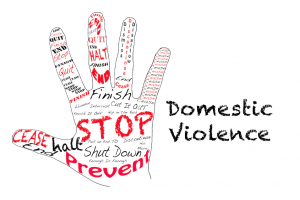
Stop domestic violence, source: https://www.herbertandweiss.com/court-decides-brother-and-sister-are-former-household-members-for-purposes-of-new-jersey-domestic-violence-law/
Was there already an increase in domestic violence in the first wave of the COVID-19 epidemic? What about right now? Do you lack staff, but space?
Regarding the statistics of domestic violence or number of cases of domestic violence, it would be necessary to contact the police, as in our society we do not know about all cases of violence that happen. In terms of experience in our Counseling for Victims of Violence program, we saw a decline in users in the first half of the first wave — meaning we recorded fewer people who needed help resolving violence. Towards the end of the first wave, we recorded an increase in users, who turned to us for help. In the second wave, the dynamics are slightly different. There has been no decline in the number of users, nor has there been a significant increase in the number of people who would need help. The Counseling Center employs 3 people and so far we do not lack staff, but we would need another office, as the number of users increases every year, regardless of the epidemic.
Why do you think there was an increase in domestic violence just at the time of the ‘lockdown’?
As stated in the first question, we can deduce from the statistics of the police whether there was an increase. I believe that an epidemic is a difficult situation that can cause many people additional distress or increase the distress that has already been present. People who are taught to alleviate distress with violence or that they solve distress with violence, also during the epidemic, they choose violent behavior to solve distress, which was even more due to this situation.
Which forms of violence are the most common and which the least?
According to the experience in our Counseling Center, all users have experienced psychological violence. Only a part of these, in addition to mental, also have the experience of physical violence. Rare users tell us that they have been victims of sexual violence, but in my opinion this does not mean that there is less sexual violence but it could mean that they have not recognized sexual violence or are so ashamed to not talk about it.
On average, how much time do victims spend with you? Are they provided with basic living needs (toilet, food…). How are the children? Can you provide them with funds for distance learning in the current situation? What about their guardians?
The Counseling for Victims of Violence program is intended for users who live in their home environment. The safe house, which operates within our association, can accommodate women and mothers with children who need to retreat to a safe place due to the threat. Staying in a safe house is limited to a maximum of 1 year. The safe house provides living conditions (separate bedrooms, common living room, kitchen, toilet and bathroom). The users run their own household and take care of their children.
What would you recommend / advise to anyone who may not want to be exposed but is experiencing violence at home?
In the case of domestic violence, “wait a minute and it will work out on its own” does not apply. As a rule, violence escalates, it does not end on its own. Many times, the victim does everything to please the perpetrator, believing that his or her behavior can prevent or mitigate the violence. All this does not really help to such an extent that the perpetrator of violence would never again choose violent behavior to solve some of his distress or. to achieve its goal, as violent behavior is the sole and sole responsibility of the one who chooses that behavior. The longer the victim is silent about the violence, the more power the perpetrator will have. I would advise victims to talk about violence as soon as possible. If they feel threatened, they are afraid of the perpetrator to call the police immediately and tell them that they are victims of domestic violence and need immediate help. Protection, they should turn to the CSD and tell what they are experiencing or call one of the non-governmental organizations that work in the field of assistance to victims of violence. One of these organizations is also our Association Life without Violence, which covers Dolenjska and Bela krajina and for this purpose implements the Safe House program and the Counseling for Victims of Violence program. Anonymity and confidentiality are guaranteed to all who turn to our association for help. If they are unable to call for help themselves, they should ask a person they trust to do it for them or to accompany them to the police or the CSD. Otherwise, this task is also performed by the professional staff of the Counseling Center for Victims of Violence.
How do victims turn for help? Do the same victims come back again and again or do you have different ones?
Those victims who turn to our Counseling Center for Victims of Violence first call us by phone or send us an email to arrange a face-to-face meeting. In the beginning, we first focus on her situation to get a better idea of what is going on and what problems need to be solved first. In the continuation together with the victim or. we make a plan for the user, how we will tackle these problems together, what needs to be done, who or which institutions need to be involved in problem solving. Users are included in the Counseling Center as long as they want and need our help. Those who have more complex problems are coming to us even for several years. Some of them manage to solve the situation in a few weeks, but they turn to us again in the face of new challenges that they cannot cope with.
Is CSD involved in working with you? How does it help you prevent violence?
We work with the CSD to protect victims of violence. Together, we plan the forms and course of assistance and look for ways to best implement protective measures to make it safest for the victim of violence, especially when it comes to the safety of children.
Can you help a victim who calls anonymously and does not want to go to a safe house or maternity home? How?
Of course! It is for this purpose that we opened the Counseling Center. In the local environment, we perceived that many people do not need to retreat to a safe location, but need help with various procedures related to violence (reporting violence, obtaining free legal aid, protection measures, divorce, arranging contacts, determining alimony…), help with processing the experience of violence in the past, in eliminating the consequences of violence, they need an escort to the institutions (to the court, CSD, administrative units, to the police. Depending on her situation, we make plan for each victim, how the help will be provided.
Please describe how the victims get to you the fastest? Does this usually take a long time? Do victims often change their minds out of fear and no longer seek help? What about the shame you also attribute to women for not taking action?
The fastest way to reach us is to call or write to one of the units of our Counseling Center for Victims of Violence:
- Novo mesto Unit 031 696 389, svetovalnica.nm@gmail.com, working hours from Monday to Thursday: 8.00 – 16.00, Friday 8.00 – 14.00 hours
- Unit Bela Krajina 051 201 760, svetovalnica.bk@gmail.com, working hours from Monday to Wednesday 8.00 – 16.00, Thursday 8.00 – 18.00, Friday 8.00 – 14.00.
We can be reached on the phone every working day, during working hours! Most of the victims who turn to us also report violence, and after the treatment of violence begins with the competent institutions, the violence also decreases. interrupts. Those victims who receive professional help and support find it easier to stick to their goal of not changing their minds. What matters is what response the victim encounters when they first talk about the violence! If she gets the message that she is to blame for what she is experiencing and that it will be even worse if she tells anyone, then she will find it harder to seek help as she will feel even more helpless and hopeless. However, if he receives the message that the perpetrator is solely responsible for the violence, that the violence is criminal and unacceptable, and that the chances of ending the violence are much greater if he seeks help, then the victim will hope that the situation can change and it will also be easier to seek help from institutions or NGOs! We have a lot of stories with a good outcome in our Counseling. We do not leave the victims alone when they are fighting for their rights and protection, but we monitor, encourage and encourage them… In families where violence is present, the victim is mostly ashamed of the violence. Most of our users have a lot of shame and other unpleasant emotions (fear, disgust, disappointment, anger…), especially in the initial phase of the counseling process. It is difficult when these unpleasant emotions and unpleasant experiences hinder them in life. We talk about this a lot during the counseling process, and over time, these unpleasant emotions and experiences become less and less of an obstacle in life and decision-making.
Sources:
– https://ec.europa.eu/commfrontoffice/publicopinion/archives/ebs/ebs_344_en.pdf
– Counseling Center for Victims of Violence
Disclaimer
The supporting organizations for the production of these articles do not constitute an endorsement of the contents, which reflect the views only of the authors, and the supporting organizations cannot be held responsible for any use which may be made of the information contained therein

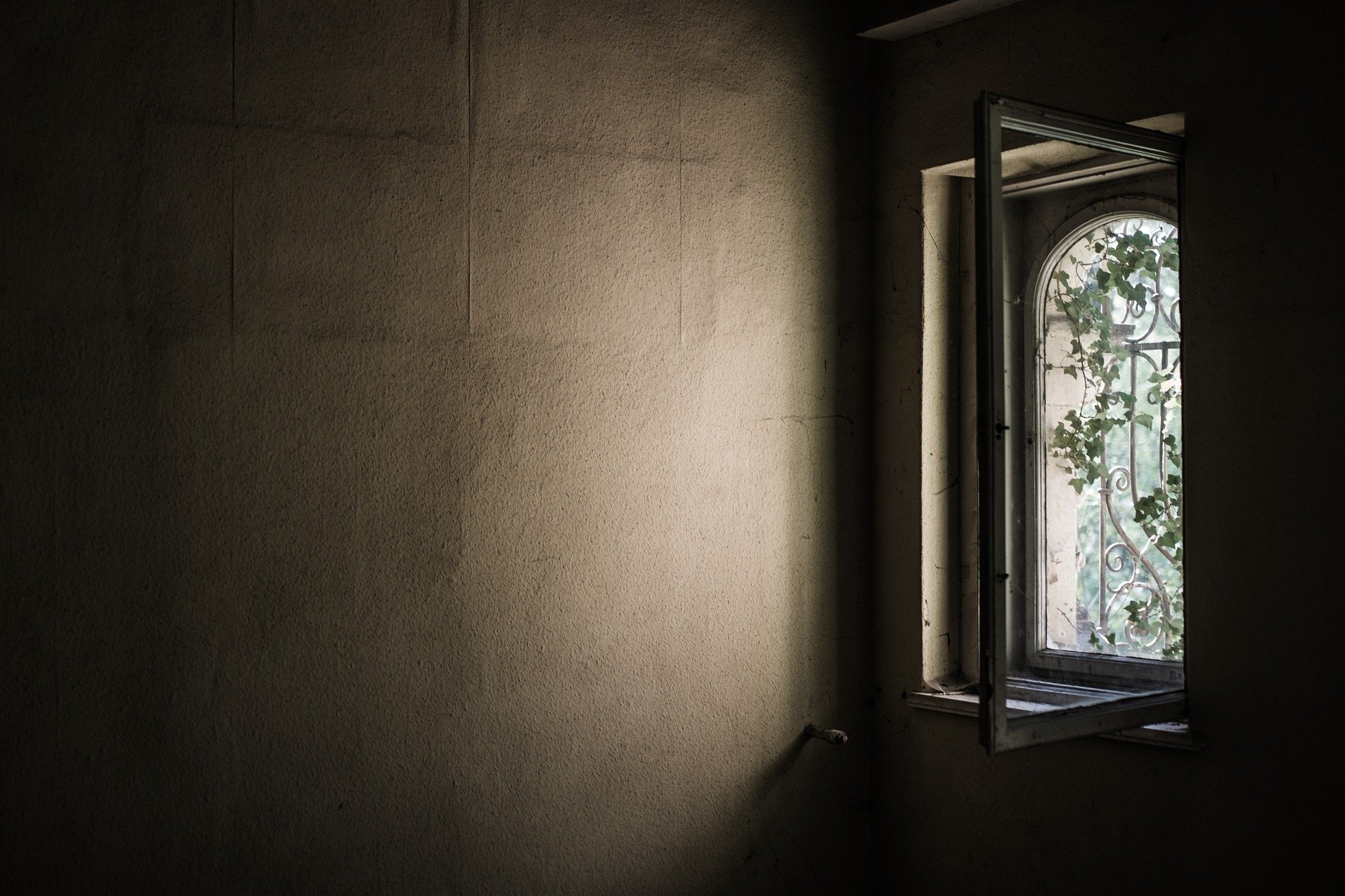
Nedavni komentarji